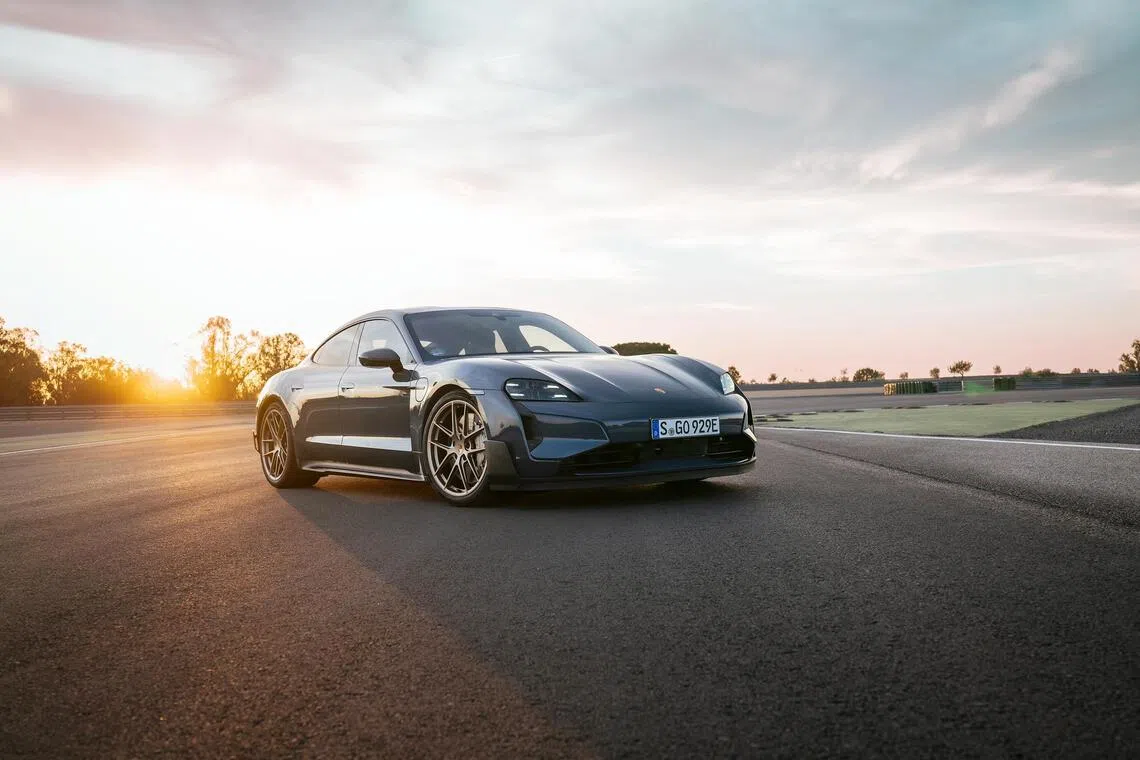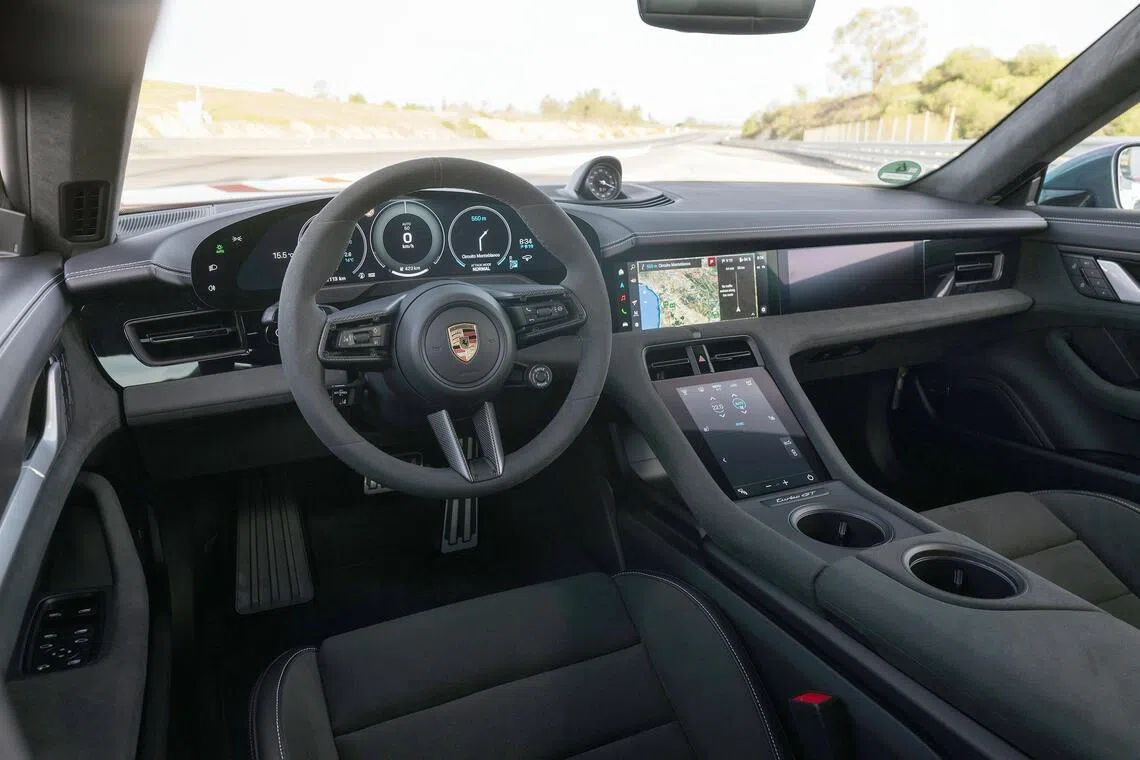Car review: Porsche Taycan Turbo GT is a 1,000hp electric sports car
Sign up now: Get ST's newsletters delivered to your inbox

The Porsche Taycan Turbo GT has over 1,000hp and takes 2.3 seconds to get from 0-100kmh.
PHOTO: PORSCHE
Follow topic:
LEIPZIG, Germany – As part of the facelift to the Taycan a year ago, Porsche introduced the Turbo GT as the new range topper for the four-door electric saloon to sit above the Turbo and Turbo S versions.
Being electric, the “Turbo” in the car’s name does not mean that there is an actual turbocharger under the bonnet.
Porsche is using the moniker as a throwback to the 1974 911 Turbo, which was the most powerful car that the German carmaker had at the time. The “GT” suffix has always been reserved for Porsche’s special models such as the GTS, GT3 and GT3RS.
Over the already ballistic Taycan Turbo S’ 700kW power output in “overboost” mode, the GT has 60kW more, bringing the total to 760kW or over 1,000hp.
Torque is up from the Turbo S’ 1,110Nm to 1,240Nm. As a result, the electric GT takes 2.3 seconds to get from 0 to 100kmh – 0.1 seconds quicker than the Turbo S.
The performance superiority over the Turbo S increases with speed. The Turbo GT takes 6.6 seconds to get from 0 to 200kmh, which is 1.1 seconds quicker than the Turbo S.

The Turbo GT takes 6.6 seconds to get from 0 to 200kmh.
PHOTO: PORSCHE
The basic design of the Turbo GT follows the regular Taycan models, which start as a 300kW, single-motor, rear-wheel-drive electric car. But the GT gets more serious performance equipment, including the 21-inch, 10-spoke forged alloy wheels with Pirelli P-Zero Trofeo tyres as standard.
Under the Weissach package, which is a no-cost option over the standard Turbo GT, Porsche will upgrade the tyres to P-Zero Trofeo RS tyres, which are even more track-focused, along with a fixed rear wing and larger front air-dam splitters.
The package includes a rear roll cage and ditches the rear seats, along with other hardcore weight-saving features that knock about 70kg from the overall weight to 2,295kg. The changes with the Weissach package trim 0.1 seconds from the standard Turbo GT’s 2.3 seconds 0-100kmh sprint time.
Launch control is activated with the left foot on the brake pedal and flooring the accelerator. The moment you lift off the brake pedal, the GT surges ahead with the level of vigour that perhaps only Formula One race drivers would experience.
Despite such high g-force acceleration that surely disrupts your bodily fluids, the car’s four-wheel drive and precise traction control delicately maintain maximum grip at all times. There is no wheel spin or treacherous wriggling about, which can make the driver feel nervous during such antics.
The Taycan Turbo GT comes standard with Porsche’s latest Active Ride suspension. This is an electronically controlled system which uses pressurised hydropneumatics to maintain the car’s body level while offering a comfortable ride over various road surfaces and driving conditions.
The GT seems to be even more agile and corners more flatly than the already impressive Taycan.
For 2025, all Taycan Turbos are fitted with an improved 97kWh battery that can receive up to 320kW from a charger, compared with the previous 270kW maximum.
Porsche claims that the Turbo GT can travel between 528km and 554km before the battery goes flat at the rate of between 21.6kWh/100km and 20.7kWh/100km. This is slightly lower than the 22.2kWh/100km energy consumption rate posted on the Land Transport Authority’s database.
In any case, the car should have an approximate real-world driving range of around 370km, assuming that the driver limits battery consumption to 80 per cent.
The Taycan Turbo GT’s blend of superlative performance, astonishing poise and real-world usability is appealing. However, it does come at a high price when compared with the standard Taycan model, which is priced from $396,507 before certificate of entitlement (COE).
Porsche Taycan Turbo GT
Price: $1,023,907 without COE
Motors: Two permanent magnet synchronous motor with 97kWh (net) lithium-ion battery
Transmission: Single speed (front); two-speed (rear)
Power: 580kW, 760kW (overboost)
Torque: 1,240Nm
0-100kmh: 2.3 seconds
Top speed: 290kmh
Power consumption: 21.6 to 20.7kWh/100km
Charging capacity: 11kW AC; 320kW DC
Agent: Porsche Singapore

